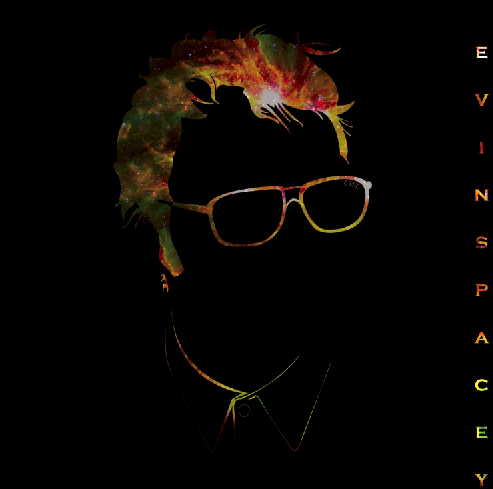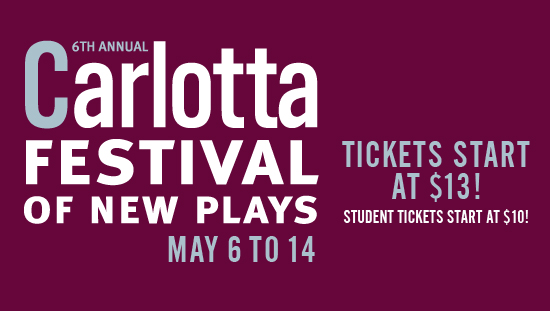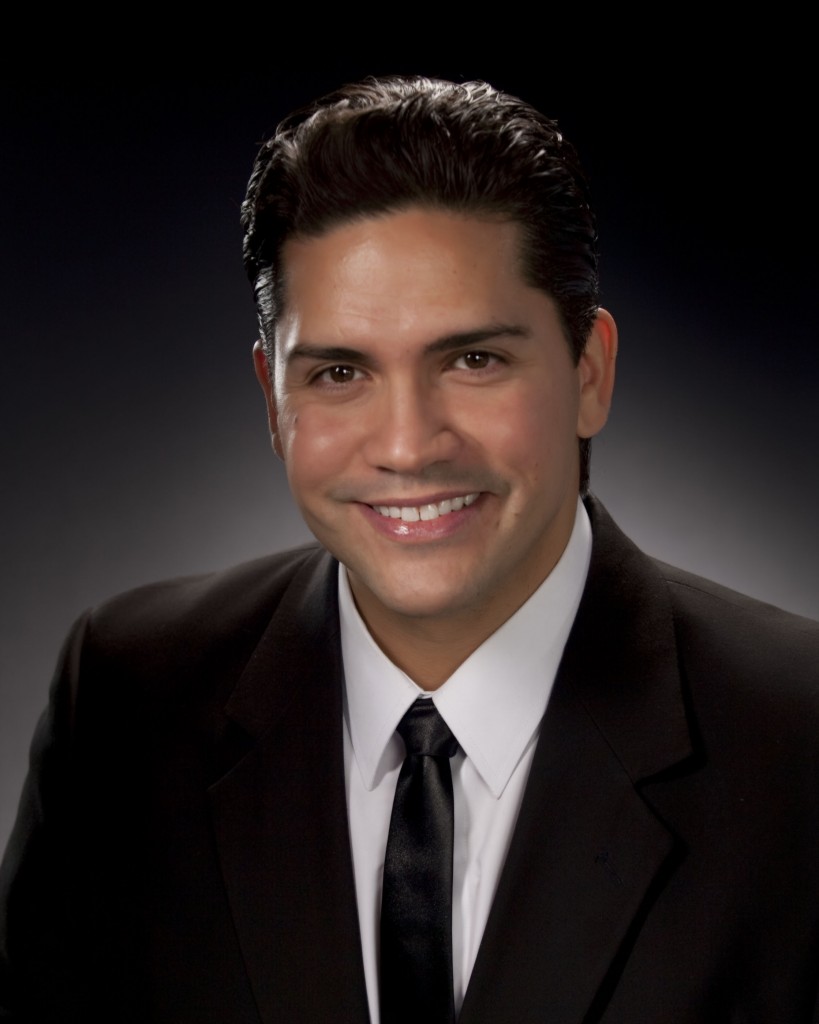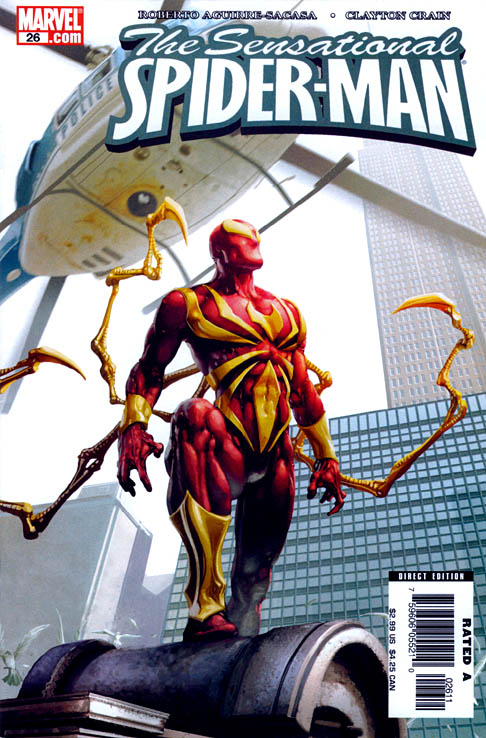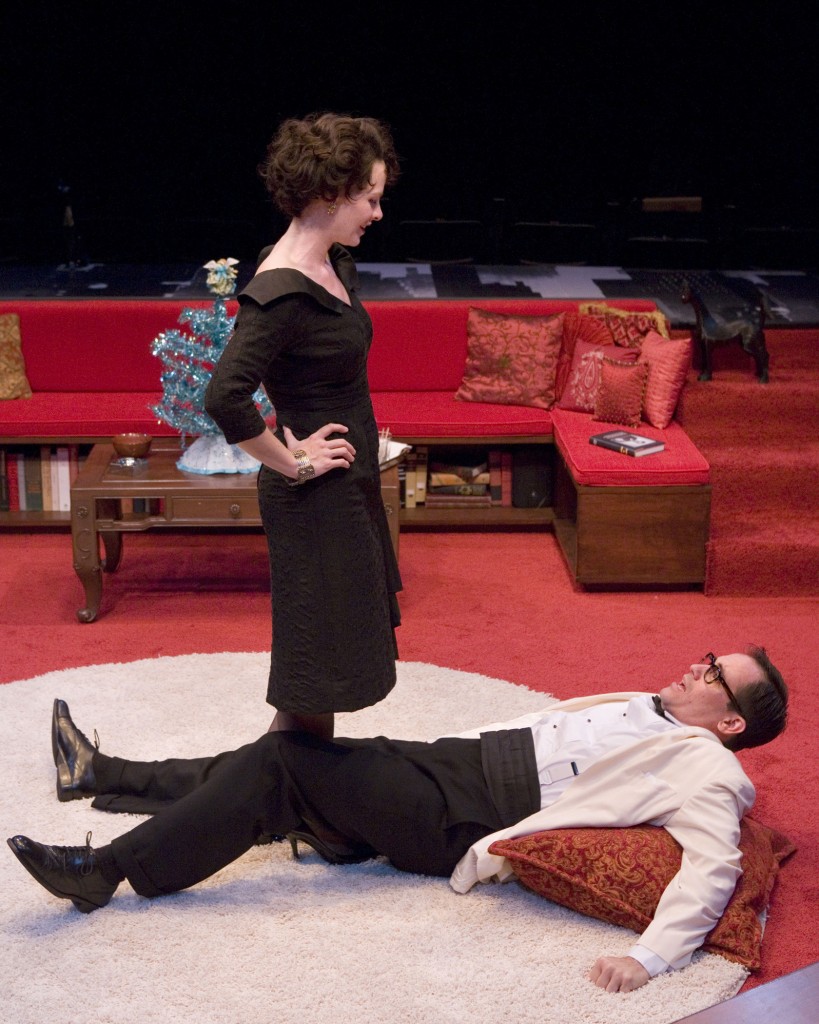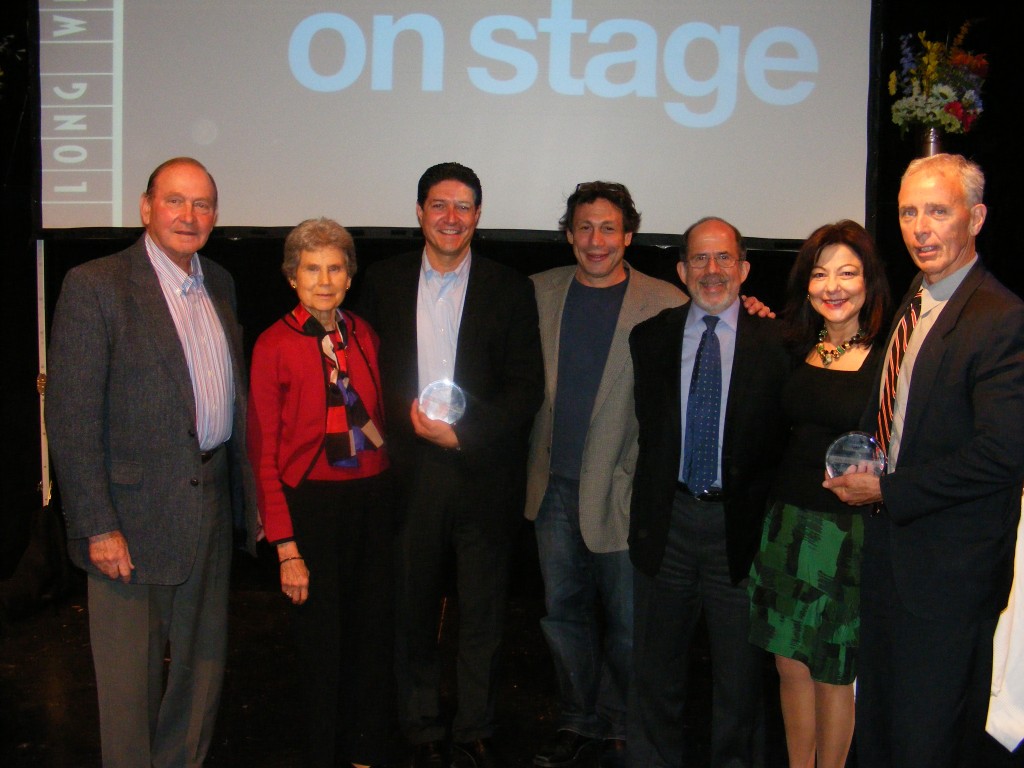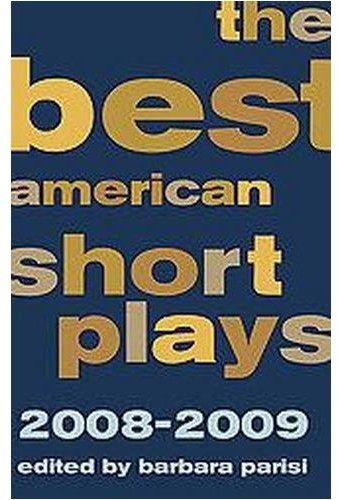
The Best American Short Plays 2008-09
Edited by Barbara Parisi (Applause Theatre & Cinema Books/Hal Leonard, 2010. 350 pages)
I’ve been putting off writing about this most recent volume in the for months, for a very bad reason—I’ve been enjoying it too much. How selfish of me. Forgive me for not sharing sooner.
But in holding off, this collection suddenly grew a local timeliness. One of the one-acts chosen for this latest publication of Best American Short Plays is by Meg Miroshnik, whose Depression-era coming-of-age womens’ basketball drama Tall Girls is playing this week at the Yale School of Drama as part of the 6th annual Carlotta Festival of New Plays.
The one-act, “A Portrait of the Woman as a Young Artist”—a feverish assault on the formalism of writers like Joyce and Stoppard and the emotional outbursts which strain to break out of restrictive forms and media—was premiered at Yale Cabaret at the end of Miroshnik’s first year at the three-year YSD playwriting program. The full-length, fully produced Carlotta plays are the student playwrights YSD swan song. Neat bookends, you could say, yet Miroshnik’s career is already blossoming off-campus. She had a play in the South Coast Rep’s Pacific Playwrights Festival this year (The Droll, which like A Portrait of the Woman had a Yale premiere directed by Devin Brain) and her The Fairy Tale Lives of Russian Girls will be produced next season at the illustrious Alliance Theater, having won the Kendeda Graduate Playwriting Award for 2011-12. Miroshnik’s got commissions for workshops, new plays and even an opera (a rewritten libretto for Shostakovich’s Moscow, Cheryomushki, to be directed by Tall Girls director Mike Donahue).
Way to go, Best American Short Plays, for such a progressive pick as the rapidly rising Meg Miroshnik. At the same time, this 350-page, 16-play volume wouldn’t be so wonderful without also having included a very late-career piece by a writer who’s now 86 years old and best known for stuff he did in the mid-1960s.
In his foreword to the book, David Ives (exemplar of the comic one-act, whose own “Sir Francis Preaches to the Birds” is included in the book) describes the collection in her introduction as “sixteen miniature worlds.” But even that grandiose expression does a disservice to Murray Schisgal’s 20-page self-reflection “Naked Old Man,” which introduces several characters from the afterlife—deceased friends of the octogenarian playwright himself, who serves as the play’s central character. Schisgal’s written some superb full-length plays and screenplays—Luv, which encapsulated the idealism and fraught romance of the ‘60s like no other comedy, and (with Larry Gelbart) the film Tootsie, which did the same for the ‘80s. But he originally established himself Off Broadway with a double whammy of one-acts, The Typists and The Tiger, and it’s exhilarating to have such vivid evidence, so readily available via this book, that Schisgal’s still a master of the form.
Schisgal, and most of the other writers in The Best American Short Plays, knows that one-acts don’t need conventional plots—it’s thrilling in the shortform just to have another character enter the room—but they do need structure, pacing and build-up. Otherwise, you’re just waiting for them to end soon, because you know they will.
Most of these don’t have such weaknesses. Some are historical (Miroshnik’s “Portrait”; Joe Salvatore’s “III,” which explores the gay relationship among early 20th-century New York cultural icons George Platt Lynes, Glenway Wescott and Monroe Wheeler). Some are theatrically self-referential Billy Aronson’s “Little Duck”, which mocks pitch meetings for TV shows, or Polly Frost and Roy Sawhill’s “The Last Artist in New York City”). Some are both; James Armstrong’s delightfully dithery “The True Author of the Plays Formerly Attributed to Mister William Shakespeare revealed to the World for the First Time” by Miss Delia Bacon is a concise faux-lecture that lasts barely longer than the play’s title. Marla Del Collins’ The Lovers and Others of Eugene O’Neill—yes, that’s the second Carlotta Monterey reference in this review, since Yale’s Carlotta Festival is named for her—is a layered interpretation of the turmoil found in O’Neill’s life and work, as represented by his three wives. It interpolates old folk ballads, poetry and swaths of O’Neill’s writing into a torrent of critical analysis that has one of the wives declaring “What melodrama!”
Despite some expected shortcomings (the comedy-sketch syndrome; the really-needs-a-second-act syndrome), all these short scripts read well. You’d like to see them performed. This book will have you pining for more one-act festivals. But the collection is a charmer on its own terms, because it buttresses the scripts not only with introductions by the editor, but with notes by the playwrights themselves explaining where the ideas came from.
Between Best American Shorts Plays 2008-09’s poles of many-more-years-of-good-work-to-come Meg Miroshnik and The-Times-probably-already-has-his-obituary-on-file Murray Schisgal, there are such stable and reliable talents as Neil LaBute (“A Second of Pleasure”) and Amy Herzog (“508”); Herzog’s another Connecticut connection for this blog’s local readers, as she also came up through the Yale School of Drama and Carlotta Festival, and will have her new play Belleville performed at Yale Rep next season.
Having established that these are assured, confident representatives of the traditional one-act form, you might well be saying: Fuck tradition! Where are the groundbreakers, the writers who are trying out new stuff in this wide-open, easy-to-experiment-within format? Well, they’re here too.
There’s a brash, balls-busting one-act in this largely self-celebratory collection that really lets the theater establishment have it, inviting a new era of theater radicialism and rioting by trying to restore some spontaneuous anger and righteousness to live dramatic performance. It does so through both contemporary outrage and historical context, conjuring up styles from Brecht to Bogosian. Amazingly, it does so in a mere six pages—so quick and sharp and confrontational that you’re left reeling just from reading it.
It’s by Emily Conbere, it’s called “Slapped Actress,” and it singlehandedly transcends the Best American Short Play series’ role as archival and ceremonial, adding pissed-off and prophetic to the list. It comes midway through the 2008-09 collection, and gives you hope for a vibrant 2010-11 and beyond.




